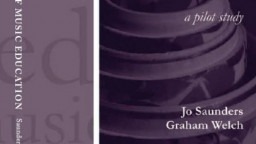Communities of Music Education

In March 2011, Youth Music commissioned the Institute of Education to conduct a piece of pilot research looking at the delivery of music education in non-formal settings.
The aim of this research was to identify how formal and non-formal providers work together to ensure equality of access to progressive music education for children and young people. This was explored according to a further three objectives:
- To investigate the outcomes of music education taking place in formal and non-formal settings (for children and young people, the workforce, and the settings)
- To identify issues experienced by schools and non-formal music organisations in working together
- To explore the effects of ‘joining up’ the musical offer from schools and non-formal music organisations on musical, personal, social and educational outcomes
Findings suggest that there are aspects of non-formal music education that are distinct from pedagogies employed in many formal settings and that the children and young people experiencing non-formal music education have their own interpretations of the inputs, outputs and outcomes of their involvement that are different from their experiences in formal settings.
This is not considered to be a negative situation since the diversity of children and young people, musical genres and practices, and opportunities for learning that exist in the contemporary music education landscape should be celebrated and supported.
The greatest priority is therefore that the ‘alternative’ pedagogies that exist in formal and non-formal settings are translated between settings, and the practitioners and teachers supporting young people’s learning can discuss and map opportunities according to mutually understood terminology and language.
Download the executive summary of Communities of Music Education
